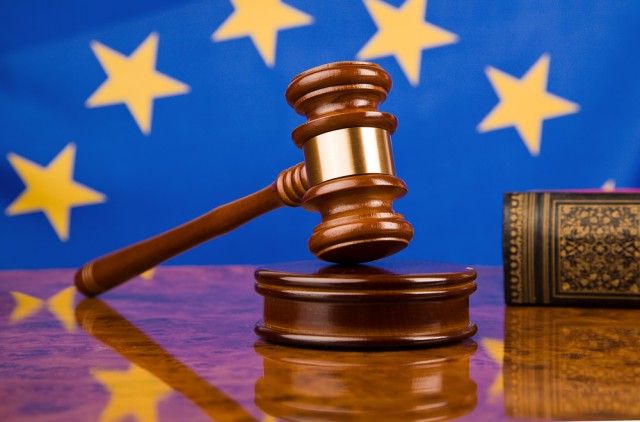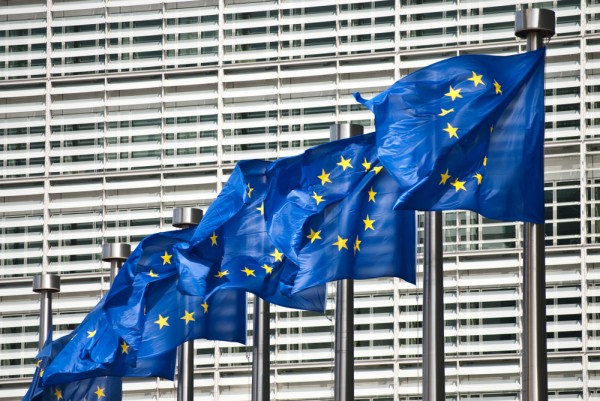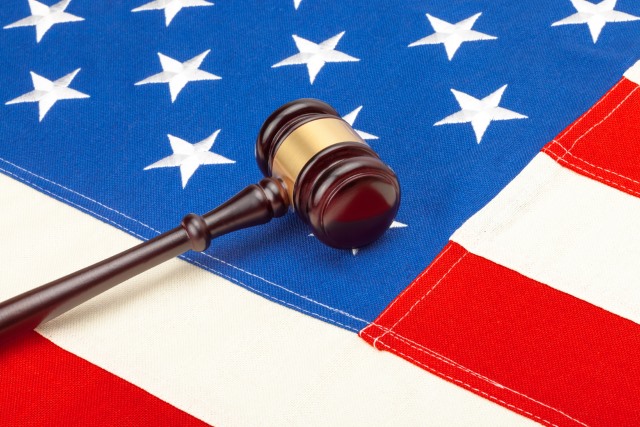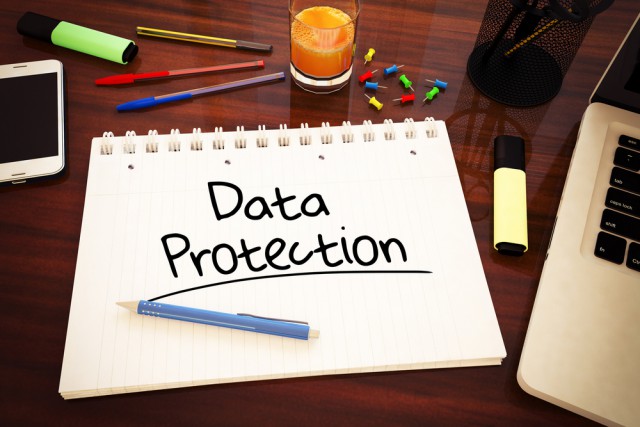
US judge says Google must hand over foreign emails to FBI, even though Microsoft need not
A US judge has ordered Google to comply with FBI search warrants which ask for customer emails that are stored outside of the US. This is in stark contrast to a recent case in which a federal appeal court ruling concluded that Microsoft did not need to comply with such orders.
The FBI issued a warrant in relation to a fraud case, and Google argued that because the emails in question were stored on foreign servers, the authorities should not be able to seize the data. However, Google has been told that transferring the emails to another server for investigation by the FBI does not constitute seizure, but conceded it was a potential invasion of privacy.

WhatsApp's security flaw has legal implications
Earlier this month there was widespread reporting in both the tech and mainstream media of the discovery of a potential security vulnerability in Facebook's WhatsApp messaging service. Coverage of the likely flaw, which was reportedly discovered by researchers at Berkeley University in California, was a blow to Facebook given that WhatsApp places privacy and security at the heart of its service by providing end-to-end encryption of user's messages and photos, preventing third parties including its own staff from accessing them.
In a nutshell the potential security flaw would theoretically allow WhatsApp to intercept some users' messages, which would appear to them to be encrypted. This has resulted in considerable speculation that government agencies could exploit this vulnerability as a means of covert surveillance, by targeting specific individuals' messages or on a bulk extraction basis.

Valve and game publishers face EU probe for geo-blocking, ASUS for online price-fixing
Valve, the company behind games distribution platform Steam, is being investigated by EU antitrust regulators. Agreements in place between Valve and five game publishers that implement geo-blocking in titles could breach European competition rules.
Valve, alongside Bandai Namco, Capcom, Focus Home, Koch Media and ZeniMax, is under investigation to determine whether the practice of restricting access to games and prices based on location is legal. At the same time the European Commission is launching an investigation into ASUS, Denon & Marantz, Philips and Pioneer for price manipulation.

EU mobile usage is about to get cheaper as roaming charges come to an end on 15 June
Plans to scrap mobile roaming charges in the EU have been a long time coming, but today the European Commission reveals the charges will finally come to an end on June 15 2017. EU negotiators have finally agreed on wholesale prices, something which is being described as the "last piece of the puzzle".
The cost of voice calls and text messages will be capped from this date, but there is a tapered reduction period for data charges. It is a step towards the creation of a Digital Single Market and the introduction of a "roam-like-at-home" will be welcomed by Europeans, although it's not yet clear if the arrangement will remain in place in the UK post-Brexit.

No, America, you can't just demand customer data from anywhere in the world
The US government has lost its bid to overturn a previous ruling which stated it could not force companies to hand over customer data that is stored on servers outside the US.
The government's appeal stems from a ruling back in July when it lost a case in which it was trying to obtain customer data from Microsoft. It was seen as a win for privacy at the time, but the government thought the ruling could stand in the way of law enforcement. A vote by the second US Circuit Court of Appeals in Manhattan means that an appeal will not be heard.

Microsoft dodges Swiss court with changes to Windows 10 privacy settings
Privacy has been a big issue for users of Windows 10, and the tsunami of complaints about spying has been a major headache for Microsoft. Now the company has managed to avoid a potentially expensive and damaging court case in Switzerland by improving data processing transparency in Windows 10.
The Swiss Federal Data Protection and Information Commissioner (FDPIC) has just reached the end of an investigation into Windows that started back in 2015. They found that Windows 10's "get going fast" quick install option automatically enabled invasive data sharing with Microsoft (location details, browser and search history, keyboard entries and nearby WiFi networks, for example) without providing users with sufficient warning.

IMDb ignores new law banning it from publishing actors' ages online, citing free speech violations
Back in September, the state of California passed a new law that banned sites that offer paid subscriptions, and allow people to post resumes, from publishing individuals' ages. It's a law that has the potential to affect many sites, but it is the Internet Movie Database (IMDb) that hit the headlines.
The Amazon-owned site is a handy source for anyone who wants to check the age of a particular actor, but the state of California introduced the new law as part of an anti-age-discrimination drive. IMDb was told to remove actors' ages from the site by 1 January, 2017, but the site has failed to take any action.

How to protect your company against a potential encryption backdoor policy
The election of Donald Trump has alarmed privacy advocates who worry that the self-described "law-and-order" president will take a more heavy-handed approach towards issues of security and privacy. Of particular concern are fears that there will be attempts to weaken or otherwise disable the encryption that is widely used to protect sensitive data and maintain user privacy.
Based on the proposed cabinet-level nominees put forth by Trump, these fears may be well-founded.

If Santa brought you a drone for Christmas, read this or you could face a massive fine
Drones have become incredibly common in the last couple of years, and they have proved to be popular Christmas presents. But new drone owners are being warned that they are probably blissfully ignorant of the responsibilities of their new toys -- and this ignorance could prove costly.
There are very strict laws in place governing where, and how, drones can be flown. Failure to comply with these rules could lead to time in prison or an "unlimited fine" -- for people in the UK, at least. So what do you need to know before you take your drone for its maiden flight?

Nokia sues Apple over alleged patent infringement
Nokia just announced that it is suing Apple in the US and Germany because the iPhone maker is allegedly infringing some of its patents. According to the Finnish company, Apple rejected any licensing offers that would have allowed it to legally take advantage of the infringed patents.
"Through our sustained investment in research and development, Nokia has created or contributed to many of the fundamental technologies used in today's mobile devices, including Apple products. After several years of negotiations trying to reach agreement to cover Apple's use of these patents, we are now taking action to defend our rights", says Nokia's head of Patent Business, Ilkka Rahnasto.
'General and indiscriminate retention' of data ruled illegal, threatening Snooper's Charter
The UK government's Investigatory Powers Act 2016 (also known as the Snooper's Charter) has been dealt a blow after the European Court of Justice ruled that the "general and indiscriminate retention" of internet data and communication is illegal.
This is a serious setback for Theresa May's government which introduced legislations that not only requires ISPs to store customers' browsing history for a year, but also make this data available to a large number of agencies. The European court made the ruling following a legal challenge made by MPs David Davis and Tom Watson which gained the support of privacy groups.

Apple loses wireless patent violation and employee rest break lawsuits
A jury in the United States District Court for the Northern District of California has ruled against Apple in a lawsuit about wireless patent infringement. Core Wireless was awarded $7.3 million in damages after Apple was found to have violated two patents owned by the company.
Apple was found to have infringed upon Core Wireless' patents in iPhones and iPads, taking advantage of technology that "provide innovations that improve battery life and signal quality in mobile phones". The company is expected to appeal against the ruling, but this is not the only case it has lost.

GDPR predictions for 2017
The European Union’s General Data Protection Regulation (GDPR) is due to come into force on May 25, 2018. This means that IT teams have more than a year to audit their IT systems, check existing customer records and data, and ensure that these systems respect the new set of rules that will be in place.
However, the gap between intentions and actions can be a big one. So what do I predict will happen around GDPR in 2017?

What you need to know about GDPR
The concept of data protection has been around for many years, since the UK first implemented a Data Protection Act in 1984. The general data protection regulation is a piece of legislation drawn up by the European Commission to unify data protection within the EU and to govern the export of personal data beyond the EU’s boundaries.
GDPR is due to come into force across the EU in May 2018 following a two year transition period. Being a regulation rather than a directive, it doesn’t require enabling laws to be passed by member states.

China's new cybersecurity law makes things harder for foreign businesses
A new cybersecurity law has been passed in China which will give the country even more control over the Internet and will require foreign companies to store their data locally.
The National People's Congress Standing Committee passed the new law on Monday, causing a great deal of concern amongst human rights groups and foreign businesses. China already limits access to the Internet through its own online security system known in the west as "the Great Firewall" but this new cybersecurity law will allow the country to further censor and control the internet.
